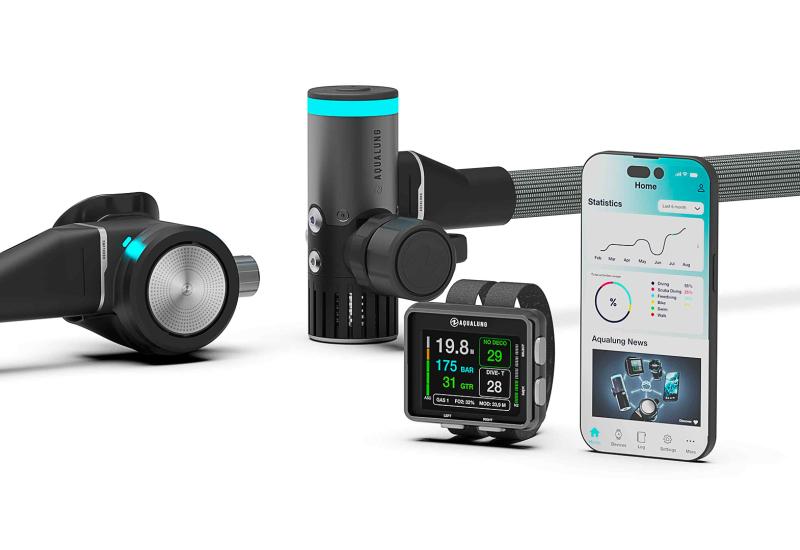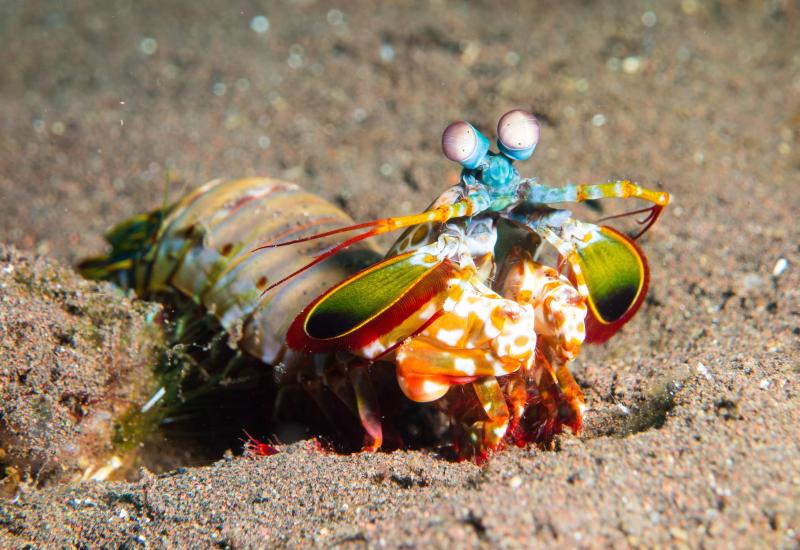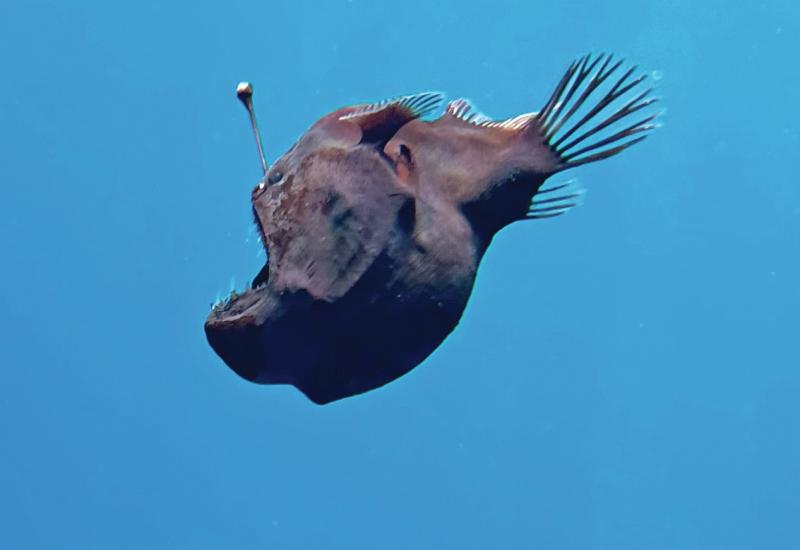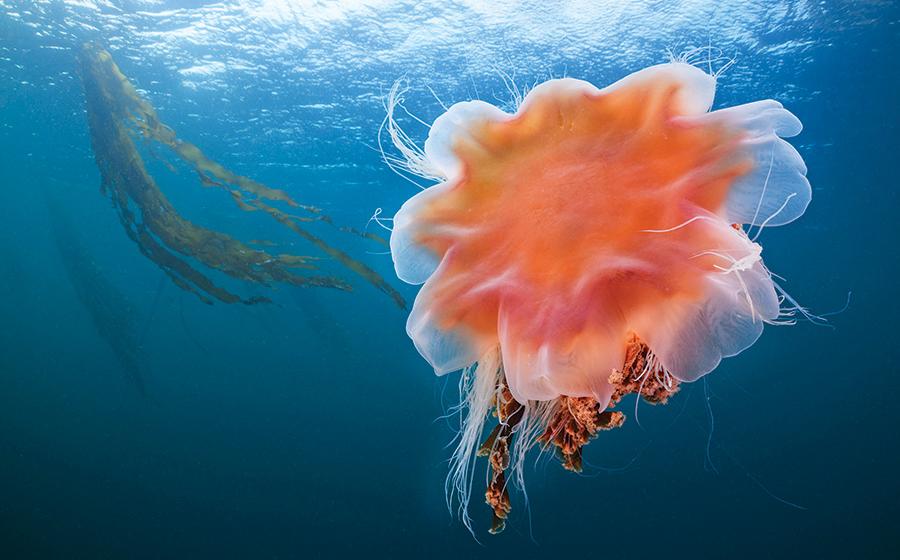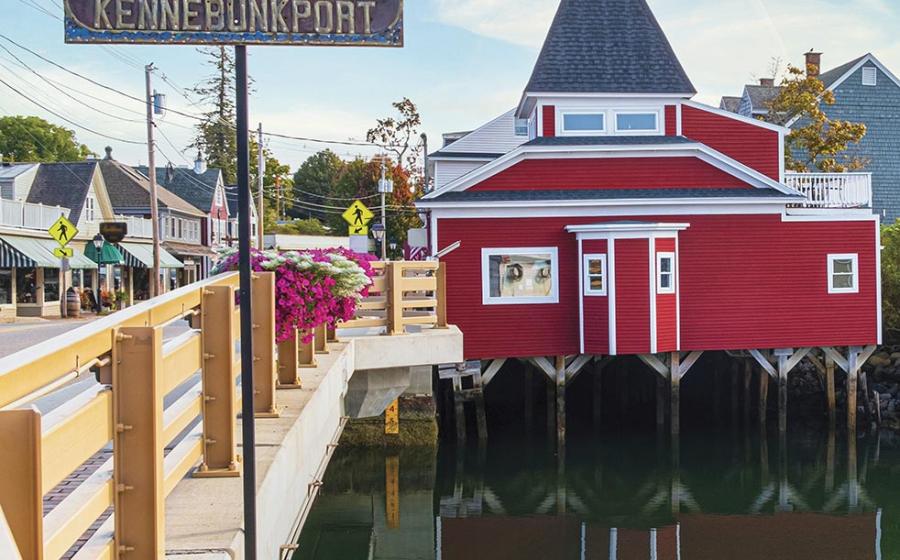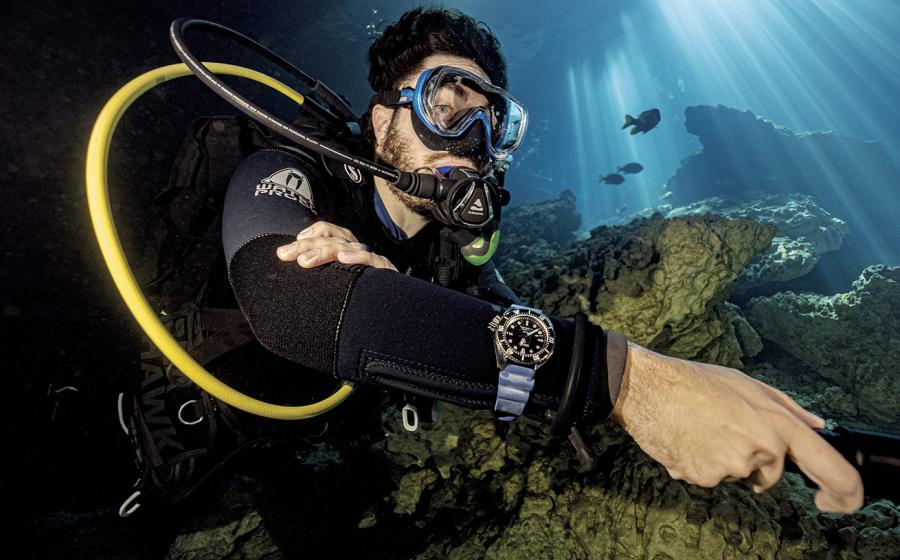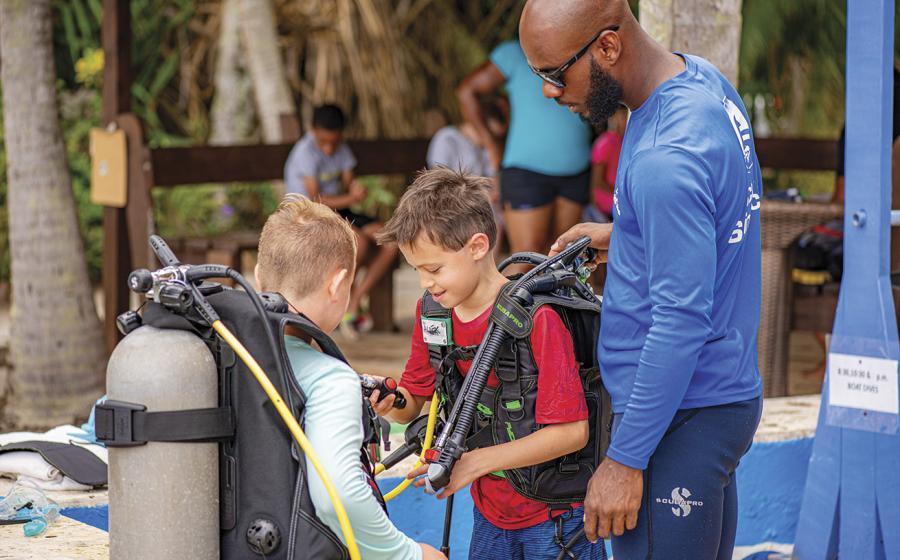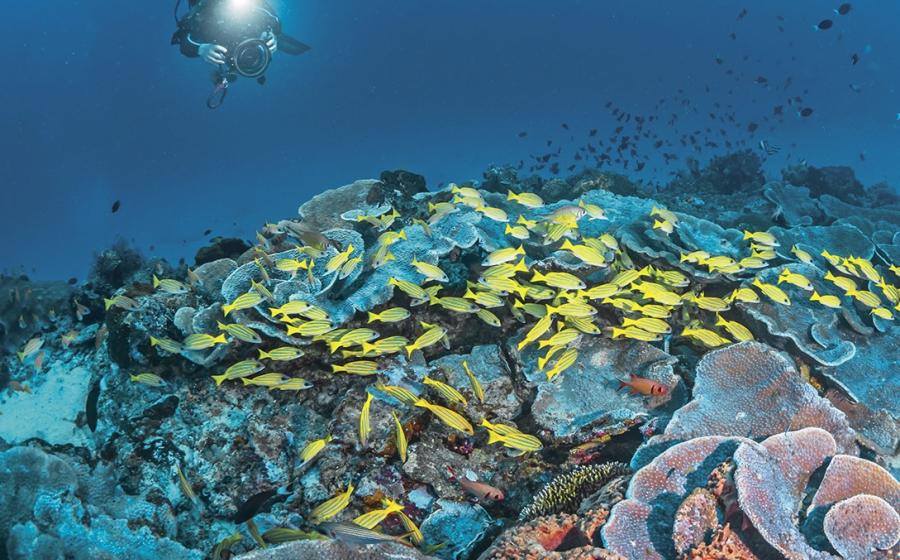What It's Like: To Dive as a Double Amputee

Scott Schroeder
Bob Care
Army Chief Warrant Officer Scott Schroeder was wounded a year and half ago during a patrol mission in the Zabul province of Afghanistan. Injuries sustained from a roadside bomb that exploded under the vehicle he was riding in required that both legs be amputated above the knee, and he lost much of the use of his right arm.
Learning to approach life differently following such an injury takes courage and a lot of support. Groups like Task Force Dagger -- a nonprofit founded in 2009 to support injured Special Forces soldiers -- provide opportunities for the whole family to heal. One of its projects brings together recovering soldiers and their families for a week of diving in Key West, Florida.
"I learned to dive in the Red Sea in 1988 but wouldn't consider myself an avid diver. Even though I dived before, I had to reacquaint myself once I got to the pool. The Army Special Forces Underwater Operations School in Key West opened its pool to us while divers got certified or retrained. There was a learning curve to all this: refitting my gear, using my swim legs, even getting on and off the boat, there was something new to be learned.
"The injuries to my right arm required me to rig the hoses a little differently, so I could reach everything with my left arm. I had special sockets for my prosthetics made so I oculd attach a foot that would work with my fins. Using basic prosthetic technology, they created an articulating joint that I could lock into the toes-pointed position necessary for swimming.
"The upside to this is that finning is really easy now. I was able to fin perfectly. You just have to adapt to what you can do. It's all part of getting back out there.
"The part you don't realize is just how bottom heavy humans are. Without my legs, I had a tendency to flip over in the water like a fishing bobber. I had to learn to compensate by using my core muscles to hold my position. The effort was exhausting. I thought I would be an air hog, but I was glad to find out I wasn't.
"When a soldier gets injured, there are a lot of people who want to help. What they really need, though, is someone to reach out to the whole family.
"Task Force Dagger does a great job at that, by including all of us. The chance to dive again, and to take a break from this world of hospital and rehab, was huge for us as a family and a real chance to heal together. We get to go somewhere and be normal for a while. For the first time since my injury, we are doing rehab together. I'm looking forward to the next trip and getting back into the water."
Update: Task Force Dagger hosted Dagger Dive IV in Key West, June 24 to July 1. Scott Schroeder was back in the water again this year along with his family.
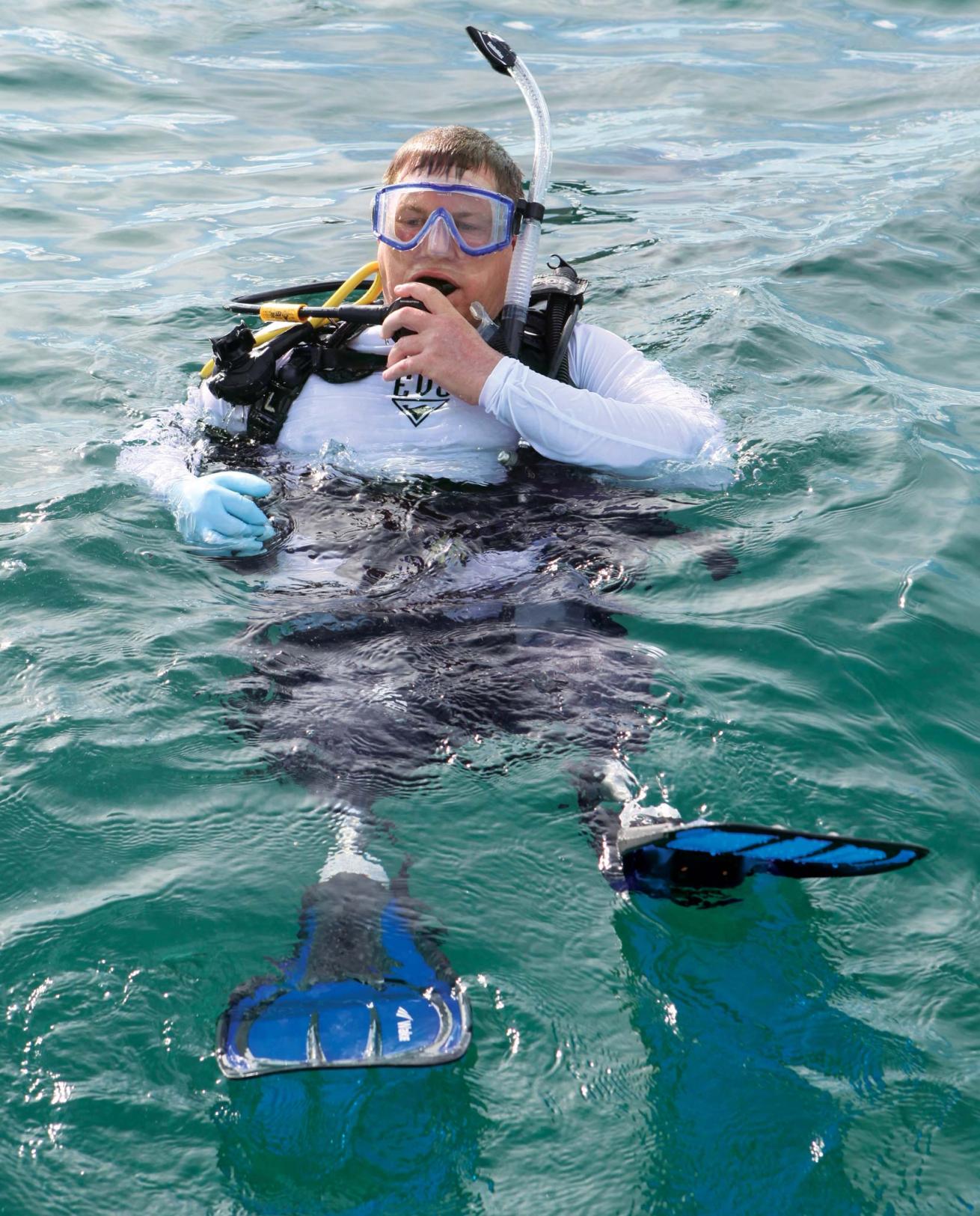
Bob Care
Army Chief Warrant Officer Scott Schroeder was wounded a year and half ago during a patrol mission in the Zabul province of Afghanistan. Injuries sustained from a roadside bomb that exploded under the vehicle he was riding in required that both legs be amputated above the knee, and he lost much of the use of his right arm.
Learning to approach life differently following such an injury takes courage and a lot of support. Groups like Task Force Dagger -- a nonprofit founded in 2009 to support injured Special Forces soldiers -- provide opportunities for the whole family to heal. One of its projects brings together recovering soldiers and their families for a week of diving in Key West, Florida.
"I learned to dive in the Red Sea in 1988 but wouldn't consider myself an avid diver. Even though I dived before, I had to reacquaint myself once I got to the pool. The Army Special Forces Underwater Operations School in Key West opened its pool to us while divers got certified or retrained. There was a learning curve to all this: refitting my gear, using my swim legs, even getting on and off the boat, there was something new to be learned.
"The injuries to my right arm required me to rig the hoses a little differently, so I could reach everything with my left arm. I had special sockets for my prosthetics made so I oculd attach a foot that would work with my fins. Using basic prosthetic technology, they created an articulating joint that I could lock into the toes-pointed position necessary for swimming.
"The upside to this is that finning is really easy now. I was able to fin perfectly. You just have to adapt to what you can do. It's all part of getting back out there.
"The part you don't realize is just how bottom heavy humans are. Without my legs, I had a tendency to flip over in the water like a fishing bobber. I had to learn to compensate by using my core muscles to hold my position. The effort was exhausting. I thought I would be an air hog, but I was glad to find out I wasn't.
"When a soldier gets injured, there are a lot of people who want to help. What they really need, though, is someone to reach out to the whole family.
"Task Force Dagger does a great job at that, by including all of us. The chance to dive again, and to take a break from this world of hospital and rehab, was huge for us as a family and a real chance to heal together. We get to go somewhere and be normal for a while. For the first time since my injury, we are doing rehab together. I'm looking forward to the next trip and getting back into the water."
Update: Task Force Dagger hosted Dagger Dive IV in Key West, June 24 to July 1. Scott Schroeder was back in the water again this year along with his family.

